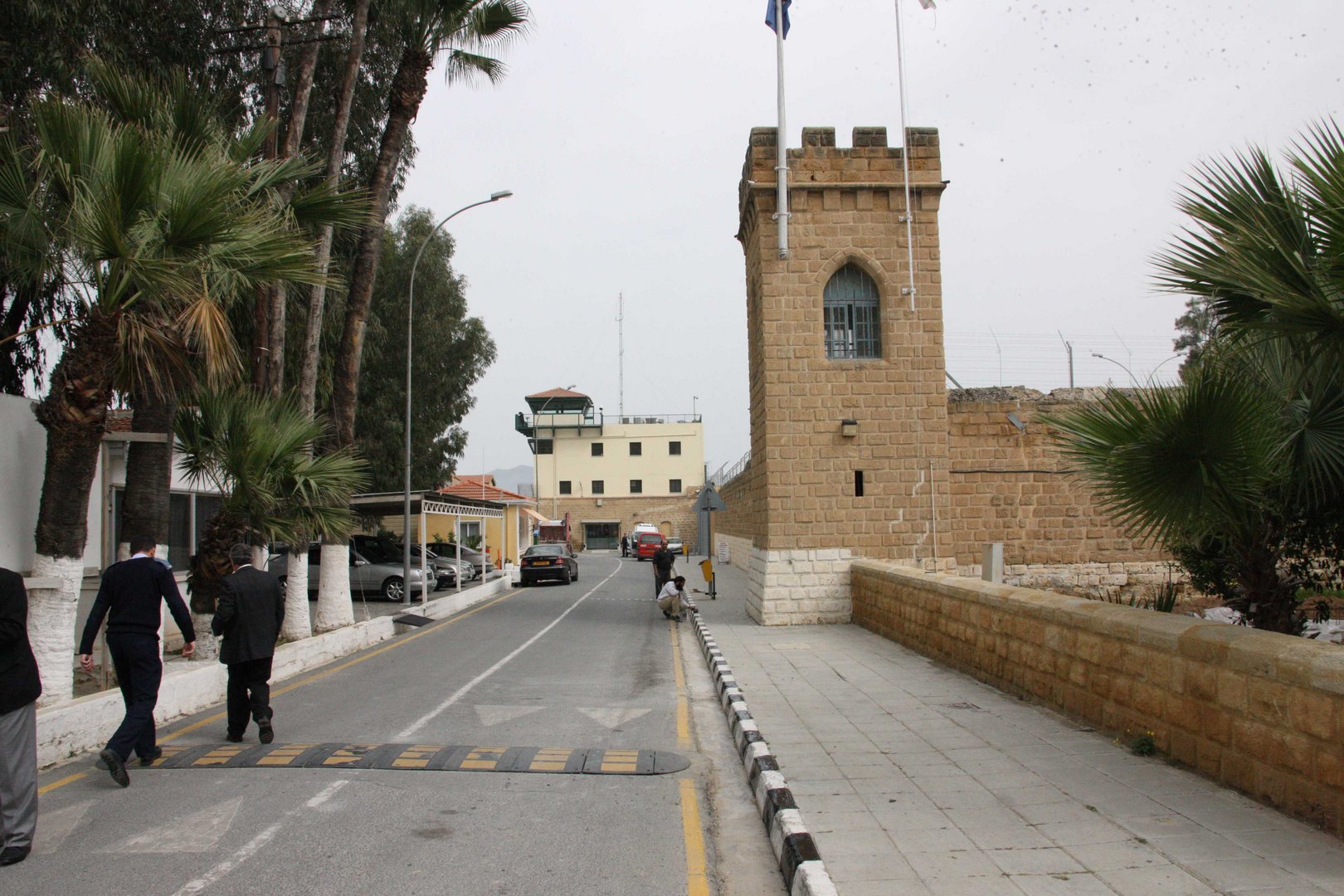Management of the Nicosia central prisons is “neither adequate nor effective”, the facility is rife with drugs and criminal activity including witness intimidation both inside and outside the prison, leading to an “uncontrolled and extremely dangerous situation”, the attorney-general’s office said on Friday.
The damning statement from both Attorney-general George Savvides and Deputy AG Savvas Angelides was issued after the case was filed with the Nicosia district court in connection with the murder of a Turkish Cypriot inmate.
One of the inmates, deemed the main suspects for the death of Tansu Cidan, 41, is to face pre-meditated murder charges, while two prison guards will face manslaughter charges, and a third guard faces the charge of negligent and dangerous actions and violating his duty.
Cidan was found dead in his cell on October 27.
The main suspect, 29-year-old Veysi Badur, is being held separately from the other 11 suspects.
Citing an investigation ordered into alleged widespread mobile phone and drug use in the prisons by four independent investigators that had been tasked with collecting testimony and data, the attorney-general said that it could now be confirmed that drugs and mobiles were widely trafficked in the prison, with the help of some guards.
“This in itself exposes the whole structure of the prison system to very serious risks that are causing reverberations in the entire criminal justice system. As a result, and based on undisputed facts, it is clear that the measures taken by the prison management are neither adequate nor effective,” the AG said.
“This leads us to an uncontrolled and extremely dangerous situation and creates risks to the safety and lives of people inside and outside the prison with serious implications for public safety and order.”
As a result of the Cidan case being filed with the court, the attorney-general’s office said that they felt obliged to comment on the findings in the independent investigation, which had been ordered in July and turned in by head investigator Michalis Christodoulou in early November.
The AG’s office cited five incidents that connected back to illegal activities within the prisons.
The first instance involved a shooting in February 2020 at an Ayia Napa café in which five members of the public were injured in an murder attempt on local businessman.
Another incident was the arson attack on an evidence room at the Limassol court in 2021, which was related to a case involving an inmate at the time who given instructions to his accomplices from the prison.
Also, the AG’s office said that in 2021, another murder had been committed with the coordination of people in prison, where the victim was a key witness in a high-level drugs case.
Another man was also murdered, after it was coordinated from within the prisons. The victim was the father of a prosecution witness who had testified and was himself in the witness protection programme.
The last example they gave was of a desecration and vandalism of a woman’s grave, which was also coordinated from the prison. The woman was the mother of another person in the witness protection programme in a drugs case.
The attorney-general’s office called on the management of the prisons to take “drastic and immediate measures” to protect the public and other prisoners, in light of these dangerous occurrences.
According to their statement, the report has been sent to Justice Minister Stephie Dracou for review, and action.
Meanwhile in a reaction to the statement made by the attorney-general’s office, Prisons Director Anna Aristotelous said that this was another attempt to “eat us alive”.
“We are in contact with our lawyers and a relevant announcement will be issued on Monday. We believe that the Legal Service’s announcement is aimed at us as well as everything that followed simply because we duly dared to report an act of corruption, which came to our attention, and which involved a senior police officer.
“The effort to eat us alive is evident by nullifying and levelling all the work we have done in the prisons for the last eight years, which are admittedly among the best prisons in Europe,” she told Politis.
Issues with the prisons have been ongoing since mid-June.
The affair broke in mid-June when Aristotelous alleged that a senior police officer – later revealed to be drug squad, Ykan, chief Michalis Katsounotos – was colluding with an inmate to secure damaging footage of her and her deputy.
That led to a series of investigations.
The first, ordered by the attorney-general, is much narrower in its scope and focuses on allegations made by Aristotelous.
A second investigation was deemed necessary after the courts found that a man behind bars – serving life sentences for murder – was the ringleader of two attempted murder attacks, having used a mobile phone while in prison to organise crime.
The deputy attorney general’s office also cited “recent reports” which allege rampant drug use inside the prisons.
Aristotelous and the unit’s senior officer Athina Demetriou asked to be transferred from their positions a day after the second investigation was announced.
There have been claims that alleged illegalities – drug and phone use, among others – continued long after Aristotelous took charge of the prisons.
In statement in September, issued by his lawyer, Katsounotos said that although his suspension was now over he would take a leave of absence until the attorney-general reaches a decision on the matter.







Click here to change your cookie preferences